2022 Pride Journal - Thriving with Pride
2022 Pride Journal - Celebrating the LGBTQ+ Community With Pride
We are honored to share the 16th anniversary edition of our Pride Journal - a platform where our LGBTQ+ Pfizer Colleagues and allies can share personal experiences of struggles, triumph, and their hope for the future in honor of Pride Month. Read the stories that have provided inspiration to so many:
Rod MacKenzie (He/Him)
Former Chief Development Officer
NYHQ
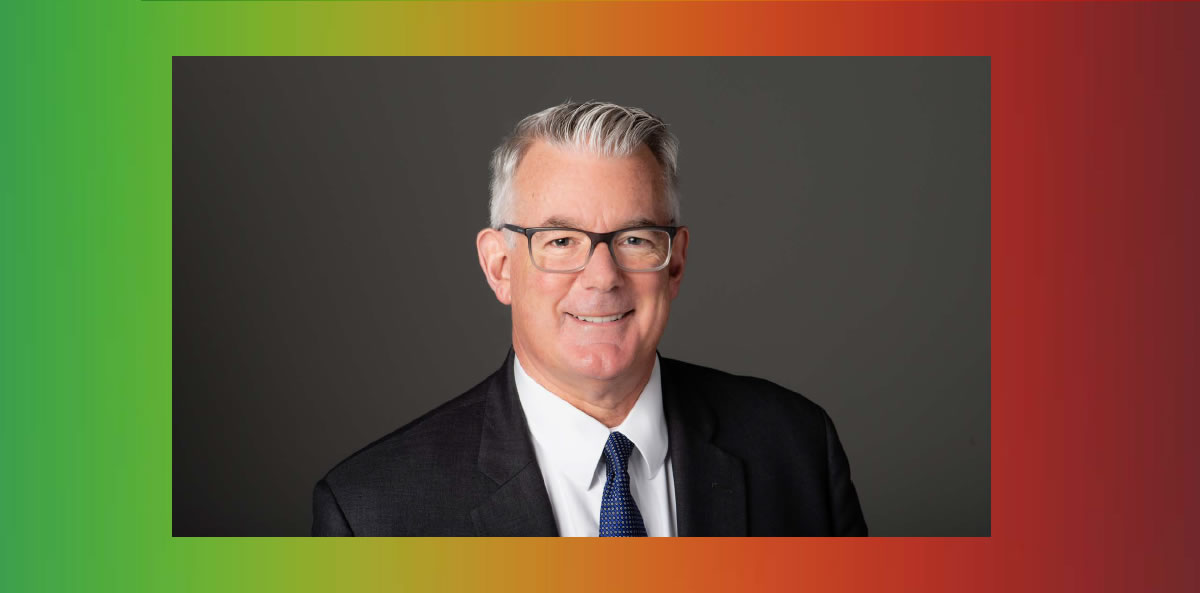
2022 Pride Journal Foreword
In 2010, I wrote an article for the Out Pfizer Employee Network (OPEN) Pride Journal about my experience with different cultures and how it helped me overcome my background – where religious and racial bigotry was rife – and become an ally for the LGBTQ+ community. Mine was probably a fairly typical story about how travel broadened my mind – or at least accelerated what education and life experience were already delivering to me.
So, what has happened since 2010? Looking back over the last 12 years, it turns out my learning was just beginning. Soon after writing that article, I was fortunate enough to spend four years as the Groton Site Head working closely with all the Pfizer colleague resource groups. And later, after joining the Executive Leadership Team, I had the privilege of becoming the executive sponsor of the Pfizer Women’s Resource Group. By educating myself through listening to the experiences of others, it felt natural to become an advocate and sponsor; to do my part to create a culture where everyone can bring their whole self to work and feel valued and celebrated for who they truly are.
I also learned that advocacy and sponsorship are very active roles. They are not academic learning exercises. They involve taking a stance on behalf of equity and doing it in public. I learned that facts are our friends, and that transparency in public and publicly stated commitments are strong catalysts to effect more rapid change. I am glad we are seeing more and more of that at Pfizer.
And it will need to continue for us to achieve our purpose and live our values to the full. Once again, young people are examining their world, finding it wanting, and are creating a new one that reflects their values. Our Purpose is inspiring, but our work is difficult, and we always need to work with the best of each new generation. They will not commit to us unless they see our values reflected in the decisions we make and the positions we take.
None of this is easy. It is impossible to please everybody, and the road is always rocky. So what matters is being true to our purpose and values. If we do that, we will always be able to look ourselves in the mirror and know that we did the right thing – even when the future is unclear, and even if the short-term consequences are painful.
Since I wrote for the Pride Journal in 2010, I have become an American citizen, a proud first-generation immigrant. In doing so, I embrace both the history of America and its future. And I do so with a hopeful heart, for both our country and our company. We both may still be “imperfect unions,” but we always aspire to be better. And as a proud grandparent now, I instinctively care more about the future than the past. It can make me anxious at times, but I remind myself that, in truth, there is nothing to fear, because the future belongs to the young – may it always be true.
The theme for this 16th anniversary edition of the Pride Journal is “Thrive with Pride.” How we as individuals and as a company make space for LGBTQ+ individuals to live openly serves to unlock their full potential as colleagues. I look forward to reading the stories shared here from across the globe and thank these colleagues for sharing them with us all.
Happy Pride Month!
Sally Susman (She/Her)
Executive Vice President
Chief Corporate Affairs Officer
NYHQ
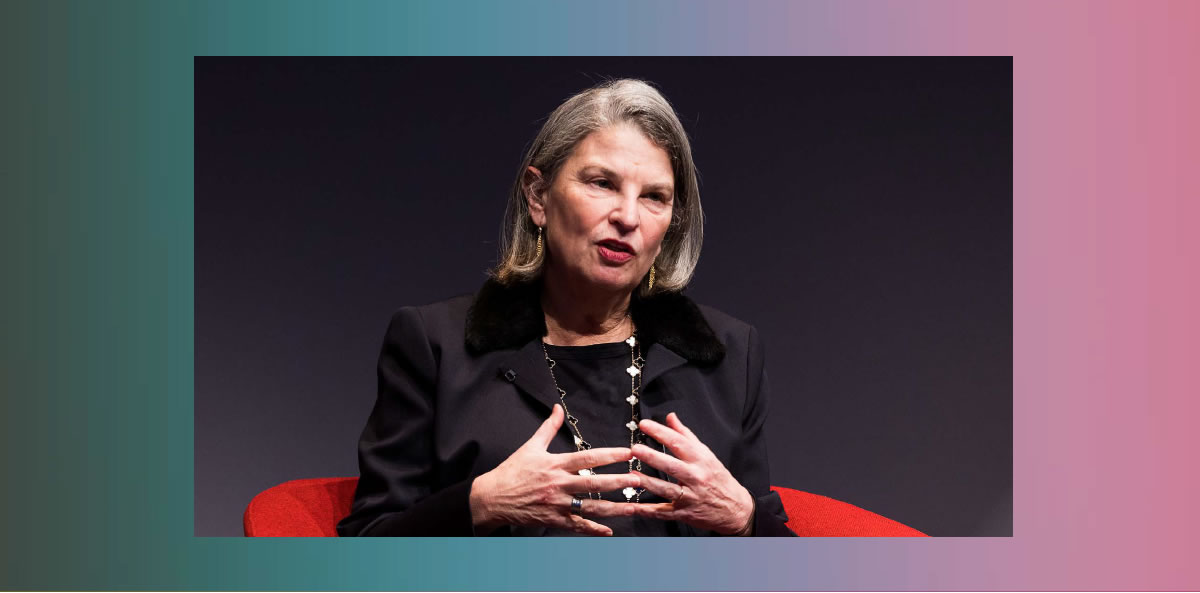
Thrive with pride and know the
power of your example.
I have the honor of telling the story of Pfizer’s race for a vaccine to external audiences – at conferences, on podcasts and in university classes. These invitations give me an opportunity to share with our stakeholders my perspective on the last two years and what we learned about focus and risk-taking.
But this is not where the conversation ends. Usually, business topics are followed by questions about my experience as a proud member of the LGBTQ+ community. How has being gay impacted my life and my career? What advice do I have for young people who feel “other” in Corporate America? And I am happy to oblige. I tell them how difficult it was to come out to my parents in the U.S. Midwest in the 1980’s, and about my father’s fear that I would never have a career, children or spouse. I share anecdotes from my professional life, like that time I was asked, “What does your husband do?” in a job interview. I talk about the values and life lessons that helped me navigate my career as a gay woman.
Recently, I wondered aloud to my team if it was time to take a break from these talks. Or at the very least to tell different stories.
Agreeing to numerous external engagements over a short period of time, I began to ask myself why I put so much energy into these events. The virtual environment made it difficult to know if I was connecting with my audience. There were sessions in which questions were slow to trickle in, people had their cameras off and it felt like I was talking into the wind. It made me question the purpose of repeating the same stories again and again.
Then, I got a note that made it all worthwhile.
After a talk at Stanford University, I received an e-mail from a student with a thank-you note that touched me deeply. Here is a short excerpt:
“Your talk was especially inspiring for me as I myself am gay. It has been a hard journey accepting myself because I grew up in a place where being gay is particularly stigmatized in society and subject to capital punishment in some parts of the country. Hearing your story has inspired me in so many ways and seeing the LGBTQ+ community representation in large corporations such as Pfizer makes me feel seen in this industry. Although I am still on the journey of fully accepting myself, hearing the stories of people like you has supported me throughout the dark periods of my life.”
This note was a striking reminder of how important it is that we continue to be visible, and that we do not underestimate the power of our own example. A heavy-handed conversation is not always needed to help someone who may be struggling. Sometimes, all it takes is the story of someone else who is thriving with pride.
As we continue to advocate for equity, inclusivity and LGBTQ+ rights, let us bear that in mind.
Thank you all for your example, your visibility and for sharing your stories – during Pride Month and beyond.
Smriti Anand (She/Her)
Statistical Programmer, GPD
Statistical Programming
Chennai, India
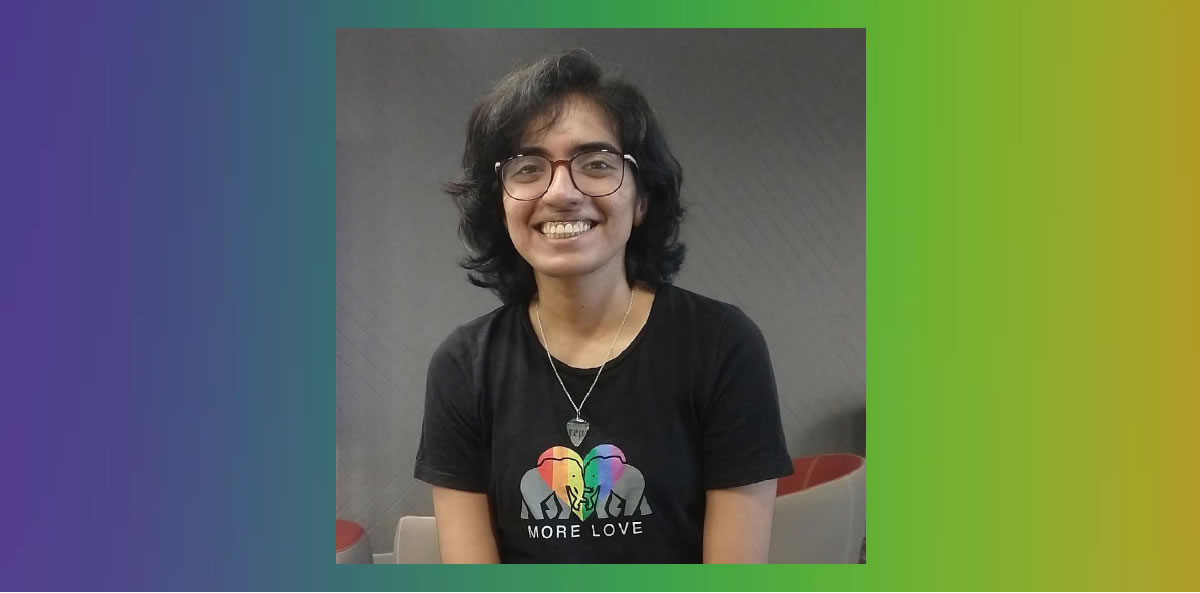
"Turns out life is a bit easier when you're not
constantly hiding such a huge part of yourself."
When I look through old pictures from school and college, sometimes I don’t recognize myself. Not because I look very different physically, but because in many ways I am now a different person. Back then I was trying so hard to be just like everyone else. It didn’t work, I suppose. I could never conform to the type of femininity that was expected of me, and my childhood bullies somehow seemed to know I was gay before I did. I was utterly miserable without ever understanding why. I even tried dating boys because I had convinced myself that was “normal.” That didn’t work either. In India, gender roles are inescapable, and there were no famous lesbians to guide the way for little, confused me. From English movies and television, I knew that gay people existed – and I knew I was an ally – but in my mind it simply wasn’t a real possibility for ME. It’s almost laughable now, how hard I tried to repress this big part of myself and how spectacularly it eventually failed.
Years later, life caught up to me. There was nowhere to hide, and once I came out to myself and admitted I was queer, I immediately told my closest friends. And its only since then that I’ve really started to discover who I truly am. The thing about repression is that if you do it well enough, you can erase your whole personality. I think that’s what I did, and that’s what I am trying to undo. Even now I learn new things about myself and take delight in them the way I imagine most people did as teens. I was incredibly lucky – my friends loved me and accepted me, and once I told my parents, they accepted me as well. That safety net – of love, of social and economic security - is not afforded to the majority of LGBTQ+ folks in India.
I haven’t physically met another out queer person at Pfizer – and that’s not because of the pandemic. In January 2020 – I’d been out for half a year – I was starting at Pfizer and very quickly realized that while everybody at my workplace was kind and nobody seemed bigoted or deliberately homophobic, I was firmly back in the closet. The feeling of not quite fitting in didn’t leave even after we started working from home. During that year, I came to know that Pfizer had a robust network of out queer colleagues elsewhere in the world. I just didn’t know anybody here who was out. I understood very well why that was – it is not at all easy to be out or to even understand your own queerness in India, where everything is gendered and heteronormative – not everyone can make the choice to be openly queer. But that didn’t make me feel any less alone. Eventually it stopped bothering me, but I felt I had to do something.
In 2021 I knew what I had to do. By then I was comfortable being openly gay everywhere else and I hadn’t explicitly been lying at work either. I knew that comfort came from a place of privilege – so why not use it to try to help others who don’t have it? I’d been upset that there were no out queer people for me to look to at work, so why couldn’t I just be that visible, openly queer person for someone else? So, I came out in an email to the entire team, which is as far as I thought I could reach. During Pride month I put myself out there. I didn’t think it would make more people come out, I just hoped that someone would feel a little safer and less alone knowing I existed. I didn’t do it for myself, but I ended up becoming so much happier at work, with everything being out in the open. It even made me so much better at my job! Turns out life is a bit easier when you’re not constantly hiding such a huge part of yourself.
To me, that’s what Pride is ultimately about. Visibility. That’s why, after so many years of not talking about it, now I won’t stop talking about my queerness. I know it matters because there are many closeted LGBTQ+ folks who can’t speak about it. It’s important for people to know that queer people exist in their real lives, not just in fiction and media. We are everywhere – we’re just less visible in some places than in others. That’s why we need allies to help make spaces safe for LGBTQ+ folks to exist as themselves – at the very least that means using inclusive language in every room.
There’s a radical joy in finally getting to be your authentic, queer self. Everyone deserves to have that joy. Someday I want it to be so no one must fight for that joy. We have a long way to go until the day heterosexuality is not considered the norm and gender is not forced into a binary. But we’ll never get there if we don’t keep fighting to be visible. At 27, I’m now growing more comfortable in my identity and the way I express myself – I no longer pretend to fit in or do things that don’t make sense to me. I like the person I am becoming, and I can share my authentic self with the world. That kid in those old photos couldn’t have imagined that in her wildest dreams.
Jason Lake (He/Him)
Associate Director, Medical Monitor
Vaccine Research & Development
Collegeville, PA, United States
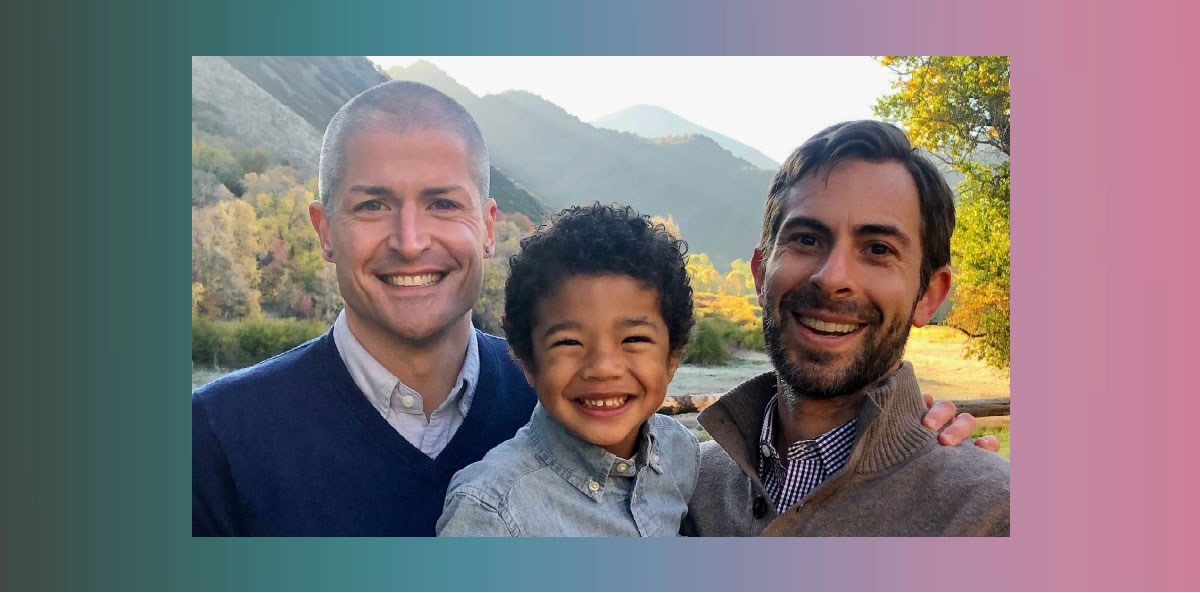
"I wanted my son growing up having his fathers'
love but also being proud of our family."
It has been a long journey for me to embrace the notion of thriving with pride. I was born and raised in a conservative community in northeast Georgia in the United States. By the time I was in my early teens in the mid-90s, I had long realized I was attracted to guys, though I kept this to myself, afraid how my family, friends, and community would react.
Over the next few years, I struggled to embrace being gay, and how to reveal my true self to the people in my life. It was during my final year of college before I finally felt comfortable enough to begin coming out. Friends and most of my family embraced my revelation nonchalantly and without fanfare — most of them having long suspected. The external support was comforting but I had invested little in seeking self-acceptance and was reticent to pursue acceptance within the gay community. While coming out was a significant milestone, I still had years to go before feeling comfortable in my own skin.
It was almost a year after coming out before I was prepared to go on a first date. It has been almost 20 years since that date — I still recall the excitement and anxiety buzzing inside me. That date led to my first relationship, which lasted for several years. During that time, I was able to be myself around him and our close group of friends. I remained uncomfortable openly acknowledging our relationship in other settings, particularly with offering physical affection, out of fear that strangers would recognize I was in a relationship with another man. I was quietly jealous of friends — both gay and straight — who were comfortable with casual affection in public.
In subsequent relationships, I remained deeply regretful for my discomfort and inability to be open and affectionate. I consider myself a warm individual who never withholds affection from people close to me, so denying this part of myself was deeply hurtful to me and my relationships. A number of my relationships along the way suffered because of this fact.
It was when I met my now-husband that I knew things needed to change. I had been out for a decade by this point, but he had only been out for a few years. Still, he had much better self-awareness than I did and was better at expressing himself. Whereas others had probably hidden their reactions to my action (or inaction), he would express his hurt when I wouldn’t take his hand in public, give a kiss in greeting, or, on occasion, failing to introduce him as someone important to me in mixed company.
After it became clear where the relationship was headed, I had to accept that for us to thrive I had to be and do better. My voice would shake when speaking up or I would glance around after a quick kiss in public, but I forced myself to do so. Ultimately, it was my son’s birth that really drove things home for me. I wanted my son growing up having his fathers’ love but also being proud of our family. I couldn’t have him internalizing my behaviors and growing up to withhold love from people he cares about. (Also, it’s almost impossible to deny a toddler who wants to walk hand-in-hand with Daddy and Dada.)
We’ve now been married for eight years, our son is 3 years old, and we have a daughter on the way. Over the last few years, I’ve finally shed my insecurities — the tremor in my voice has long since vanished and anxiety over affection is gone. It’s hard to believe I deluded myself into thinking that by withholding physical affection or hiding my relationship, I was protecting my identity. Looking back at pictures of my husband and me in the early days of our relationship, it’s completely evident who we were to each other even then, but I think I needed the love of my family to embrace who I am and thrive.
Marsha G. Morley (She/Her)
Director External Supply Strategic Sourcing
Pfizer Global Supply
Kalamazoo, MI, United States
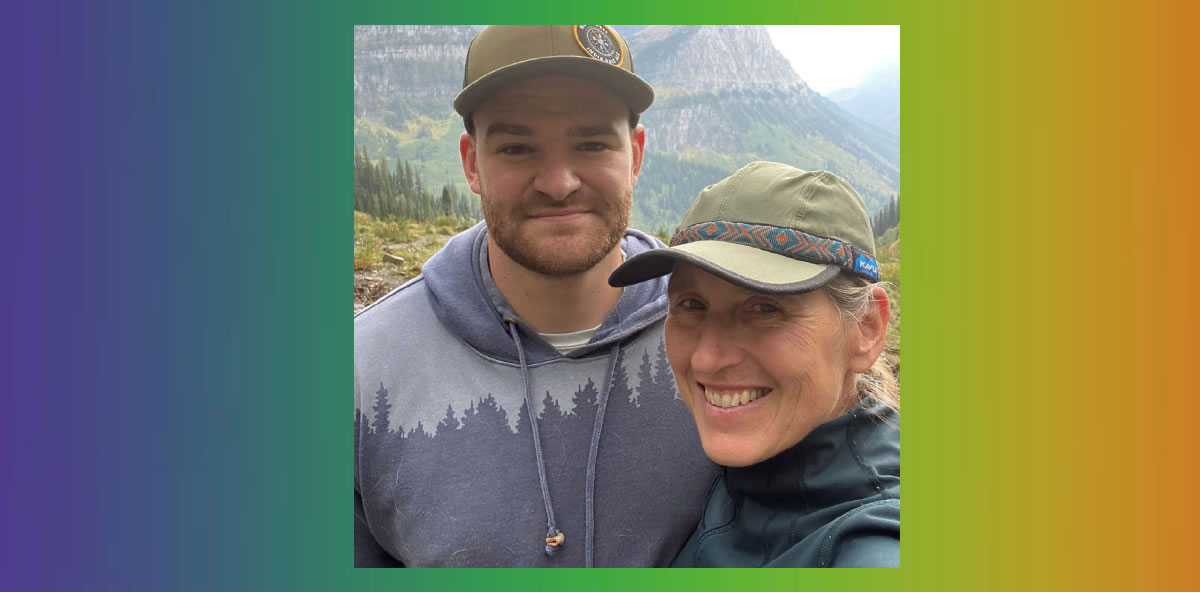
"Learning to live my life authentically
allowed me to thrive with pride."
I knew from a very young age I was queer but it took me decades to fully embrace my authentic self and thrive with pride. In the 5th grade I had my first big crush. It was on a girl who had broken her leg and I was tasked with carrying her books for her during school. I didn’t have a word for what I felt. I was living in small town America I didn’t know any queer people. What I did know was the feelings I had were considered societally wrong and had to be kept secret. It was a heavy burden to carry my secret as a child. I tried to appear “normal” and focused on my education. I continued to have unrequited crushes on girls through high school but had resigned myself to a solitary life. I would never get married. I would live isolated from others on a farm. I would have tons of animals because they don’t judge.
Going to college I found a few other queer people. However, I grew up prior to the Internet and social media, so living in a small town I did not have access to the broader queer community. There was not an easy way to find the gay community except by going to bars which did not fit my nerdy-science lifestyle. Since I had resigned myself to a solitary life, I was surprised when in college I fell in love and found a reciprocal relationship, my first and only romantic relationship lasting 35 years.
I never came out officially to my parents, family, or work, but we always lived our lives openly. My partner and I lived together, had joint financial accounts, and attended functions together. Fortunately, my partner was always welcomed during family and work gatherings. After being together for 10 years, buying a house together, and moving to Austin, Texas, my partner and I decided to have a child through artificial insemination, which was not common in 1994. We got turned down by several doctors who “didn’t work with single women, only married couples” but living in Austin we were able to find a doctor willing to work with gay couples.
One of the scariest days of my life was telling my mom my partner was pregnant. I had no idea how she would react. To my surprise she was thrilled and even got on the phone to tell one of her friends. It still brings tears to my eyes. My mom always accepted our son, who is 27 now, as her grandson. Acceptance by my family of my partner and son helped alleviate the burden I carried as a child.
Raising my son but not being recognized legally as his parent was scary and difficult. As soon as he was born, we went to a lawyer to do what was legally allowed at the time. I carried an affidavit with me in my wallet for 18 years signed by my partner giving me authorization for our son’s medical care in case of an emergency. Any hospital could have denied me access, fortunately I never had to test the legal boundaries of the affidavit. We also had a will where my partner had a document stating our son’s custody would go to me and that she did not want custody of him to go to her parents or sister. Again, it would have been up to the court to decide since I had no legal right to my son. I decided I would go to Canada if it came down to losing him. The biggest advantage of the legalization of gay marriage in 2015 is giving queer couples the same rights as straight couples which I never thought would happen in my lifetime. These rights include adoption of children allowing legal parental protection by both parents.
Today, I am inspired by the next queer generation pushing the evolution of the queer community and society for acceptance of gender nonconformity to change societal norms. I am excited to see gender spectrum terms and openness to understanding the spectrum of gender identification. My life has exceeded my childhood expectations in work, family, and friends. Learning to live my life authentically allowed me to thrive with pride. I am proud to work for an inclusive company and hope by sharing my story, it helps to support those coming out to live authentically. The people who belong in your life will respect you.
Emily Nichols (She/Her)
Real World Data Project Manager
IDM Medical Affairs
Walton Oaks, U.K.
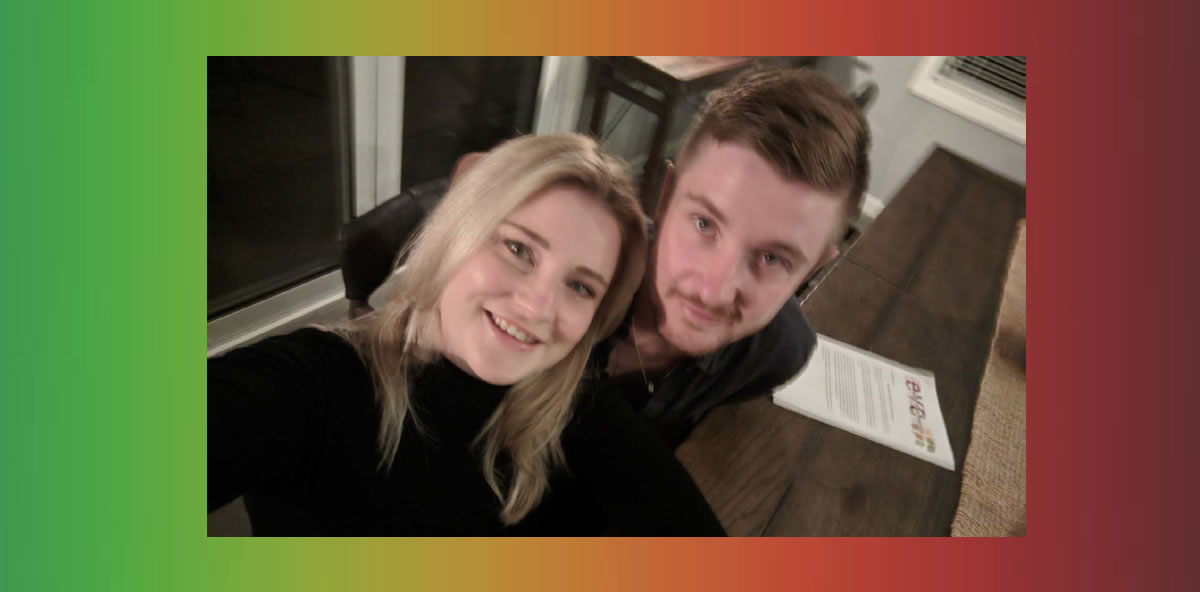
"Let's hope we can all be
someone people want to let in."
My journey as an ally started in the intensive care unit in 2012.
At the time, my brother Billy was 20, and after getting A-level grades in school and working for a while he went off to do a bit of travelling around Europe. We were so excited for him. When he came back he was so full of life and excitement! He told us he had met a girl and he was going to go to France and live with her for a while. After losing our mum as teenagers, it felt like we had been floating for a while trying to find our place in the world, so this pursuit of happiness was very welcomed. I didn’t ask many questions; I could tell he didn’t want to talk about it too much, but I thought he might get annoyed with me being nosey and I felt I was being accepting.
The weekend before he was due to leave for France, he went to spend a weekend in Devon with friends. On the way home the car aquaplaned and swerved to miss an oncoming lorry. They left the road, rolled three times, and were brought to a stop by a tree. Two boys managed to get out of the car, but Billy was left suspended upside down by his seatbelt. When they took the seatbelt off it became clear he couldn’t move his lower body and after six hours of emergency services cutting him out of the car, he was airlifted to the hospital.
Billy had shattered a vertebra in his cervical spine, which had damaged his spinal cord, and he also had a ruptured spleen and a punctured lung. After ten hours of surgery, the surgeon came in to the waiting room to tell us that he had done the best job he could but he would be unlikely to walk again or have much upper body movement. If he even had any dexterity in his fingers he would be lucky.
I just wanted to be with him. Following the surgery, he was understandably distressed, because his chest muscles weren’t working. He was being assisted to breathe so it was quite difficult to speak but he was really adamant that because he was going to miss his flight to France, I needed to get in contact with someone to let them know. He said the girl he was going to meet had an uncle and that I needed to email him and let him know what had happened and suddenly, the biggest most obvious penny dropped and then I dismissed it. He had a secret, I knew that. He was ashamed, I could tell that, but it must be something REALLY bad for him not to share it with me because I was accepting, I love him more than anyone else, I am open, and I am kind to others … it can’t be his sexual orientation because hiding that from me didn’t fit with my perception of myself and our relationship.
It was.
Billy is gay. In some ways it doesn’t matter at all and in some ways it matters to everything. While I felt like I was floating around finding my place, he was in turmoil, feeling ashamed – moving to another country to live a life where he can be himself. He’s faced a challenge I never had to, felt emotions I have not encountered, and experienced the world through a completely different lens, all while living under the same roof and before he was 21.
Since then, Billy has made a good recovery and aside from some limitations he can walk and has full use of his arms and hands. He now lives in Australia with his partner Jay, and they are getting married in June this year!
Billy has allowed me an opportunity to re-evaluate myself. His journey has pushed me to really listen to what support other people need, rather than making assumptions. It isn’t the responsibility of the LGBTQ+ community to find a place in the world, it is up to the world to make space, in hearts and minds, families and friendships, workplace and education. Queer Eye star Karamo put it so well in an interview I read recently: “I believe that the term 'coming out' is outdated, it gives the power to someone else to accept or deny you when, in actuality, what the process is, is letting people into our lives. It gives power back to the person who actually needs it.”
Let's hope we can all be someone people want to let in. Happy Pride!
Drew Aguilar (He/Him)
Director, Value and Access, Paxlovid
Patient & Health Impact
FL, United States – Remote
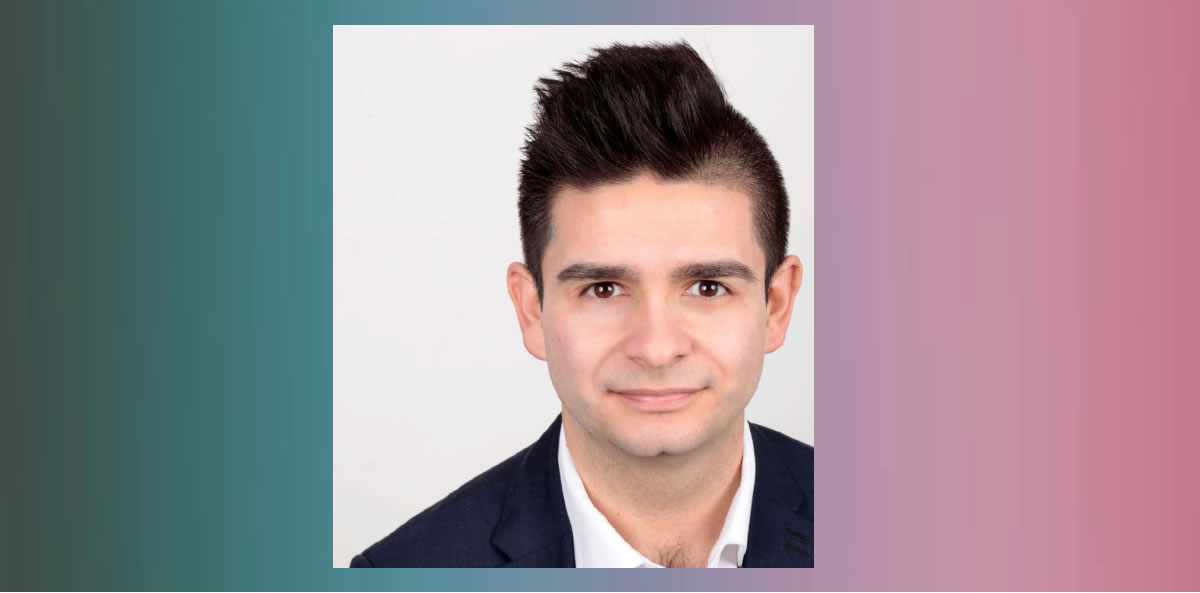
"It is up to us and our allies to reaffirm the principle of equity and the right that individuals have to choose how and when they identify."
Working at Pfizer, we focus on the communities we serve and live this focus each day through our value of Equity. As a member of two distinct communities, Latino and LGBTQ+, I take pride in my work to ensure equitable and affordable access to Paxlovid globally. While I’ve identified as Latino throughout my life, my decision to openly identify as gay is relatively recent.
Self-identifying as gay is the most consequential and difficult decision I’ve made in my adult life. My decision to come out in my mid-twenties was fraught with anxiety. I grew up knowing that I approached my life differently from most of my peers, though I was unable to precisely identify the reason why. I carried this observation through my college years at Stanford and while living abroad in Paris while pursuing a Fulbright Scholarship.
My time in Europe in the 2010s began a gradual process of reflection on what was the source of the difference I had noticed since the beginning of my adolescent years. When returning to the U.S., I experienced a series of events that forced me to confront the issue head-on. While painful, the experience prompted me to identify as gay and come out to my close friends and family. I remember relying on the support of three of my best friends to deal with the issue. They encouraged me to come out publicly, and their love and support prompted me to self-identity as gay.
In a testament to how society has changed from growing up in the 2000s, my friends and family embraced my new identity. For most, it was a non-issue and indicated a sign that my identity was part of the collective mainstream. It was a reaction that surprised me and continues to prompt my reflections on the debate over the future of LGBTQ+ rights. I firmly believe that the majority has embraced a more tolerant view on the LGBTQ+ community, despite the vitriolic debate we see as part of the culture wars. It is up to us and our allies to reaffirm the principle of equity and the right that individuals have to choose how and when they identify. I look forward to a day when we no longer need to “come out,” and more individuals are accepted in the way I experienced.
Today, I am proud of my multiple identities, and I am proud to work for Pfizer, an organization that promotes diversity and places equity at the core of our business.
David Jimenez (He/Him)
R2R Inventory Accountant
Global Inventory Accounting
Escazu, Costa Rica
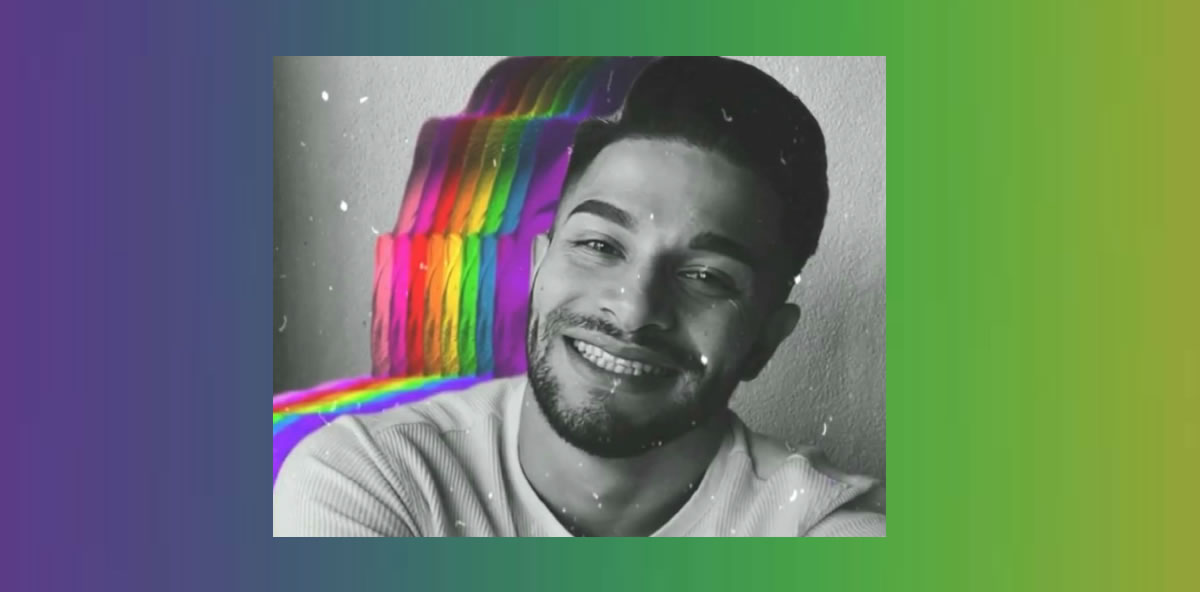
"My key to thriving with pride is knowing myself, because if you know who you are no one can sleight you."
My name is David Jimenez Garcia. I’m almost 30 years old and from Puriscal, a little village in San Jose, Costa Rica. My family has always supported me and my sexual identity.
I remember a specific moment when my mom empowered me to be honest to myself and to follow my own road. She told me “Dear, some people are not going to accept you, some others are going to hate without a reason, and I won’t be there to protect you, but you need to be strong and true to you.”
As a good mom, she wasn’t wrong. Several people tried to destroy some of my shiniest pieces and they were so close to dimming my light, however my self-perception allowed me to be strong.
I have met and crossed paths with a lot of people who gave me the second-best gift in life, and that is the opportunity to fragment myself and discover what I can improve to build the best version of myself.
I have had different experiences during different stages in life, which have defined some parts of me. I come from a family who loves to play soccer; my mom and sister are really good at playing, however I couldn’t find friends who gave me the opportunity to practice it. So, my sister started making me part of her matches. I started playing with the girls until the age of sixteen when some guys told me, “David, a guy is missing, would you like to play, just to complete the teams?” It was the first time I felt like a part of something. Since that day I was part of the team; they added me to the chat and today we have developed a kind of friendship.
I also played volleyball and being part of a team helped me learn to be open and friendly. I realized then I was introverted, and it was blocking me from living different experiences.
In my professional career, I have interacted with people of all ages, and it let me understand different points of view. I started in a national company and the culture is completely different than an international company; the coworkers are less inclusive.
After five years in the same company, I moved to my first international company, and it was complete change. I remember one day my team told me “David, now you are different, you shine, and you look happy.” They were right. I felt freedom because I wasn’t evaluated based on my appearance or my hair color, the evaluations were done based on my performance.
Now today, working here at Pfizer I can see several improvements in opportunities and I must recognize that we, all together, are working to achieve the best environment for all of us.
I’m not even close to being “perfect” and I’m not looking for it, but for sure I’m growing each day and trying to become my best version. My advice for all people would be trust in yourself and be proud of yourself.
My key to thriving with pride is knowing myself, because if you know who you are no one can sleight you.
Maria Moricz (She/Her)
Breast Cancer Medicine Team Lead
Pfizer Oncology Global Product Development
La Jolla, CA, United States
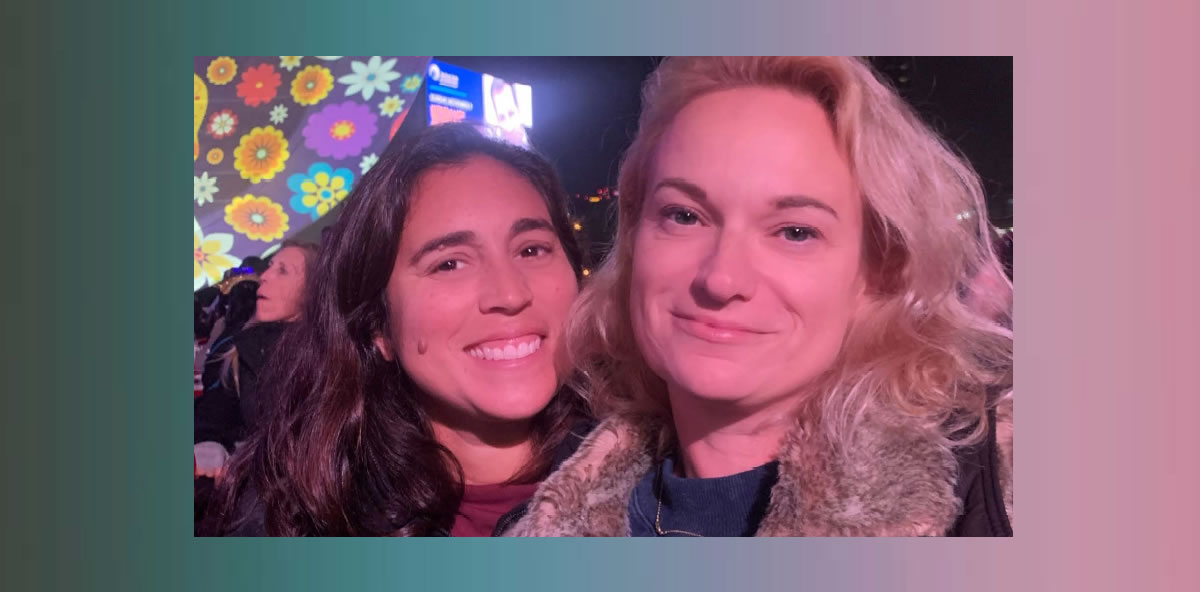
"When the world stopped, we found peace and incredible love in the unprecedented opportunity for pause and reflection."
There is no doubt that the world faced incredible challenges during the pandemic shutdown. Most people were challenged with isolation and immeasurable loss in many facets of life before Science Won with Pfizer’s vaccine. This is not our story. When the world stopped, we found peace and incredible love in the unprecedented opportunity for pause and reflection.
Nicole and I met before the pandemic started, each having moved to sunny San Diego in the years prior for an active, outdoor life outside of the office. She enjoyed mountain biking, tennis, and hiking, and I kept busy with beach volleyball and day trips with the kids (Li, then 17, Michael, 14, and Tommy, 8), exploring the area after relocating from New York Headquarters.
When I first heard that the pandemic had extended to Milan in March 2020, I questioned whether to cancel my business trip to the Milan office. However, it quickly became clear that all travel would be suspended in lieu of fully remote work and school. Suddenly we found ourselves in an unfamiliar, self-contained, and shrunken world. Despite the setbacks, we soon discovered a rare chance to replace outside daily commitments with cohesive family activities that fostered connectiveness.
We immersed ourselves in outdoor adventure, learning to play pickleball in the street, hiking close to home, and camping. Eventually my business trips to Chicago, NYC, and Madrid were also cancelled, but the pace of work picked up significantly. It meant more time together at home but increased need to support and help one another in the new normal. We laughed, we cried, we waited, we vaccinated, and most importantly, developed an even deeper appreciation and love for one another.
As the world recovers, our family is now thriving. Tommy, now almost 11, loves attending school and has a surprising ability to compete with people of all ages at the public pickleball court. Michael, now 16, started high school and has joined our adult volleyball club. Li, now 19, was thrilled to move to college at nearby University of California San Diego. We are very active as a couple and as a family in many local social and activity groups, none of which are specific to the LGBTQ+ community. We have never had any issue being included and welcomed; and have even been told that our love and happiness is infectious. Finally, something that we don’t mind being contagious! When we take the time to reflect, we realize that is all we really need.
Garrett Barnard (He/Him)
Senior Manager, CX Experience Management & Digital Strategy
Pfizer Digital
NYHQ
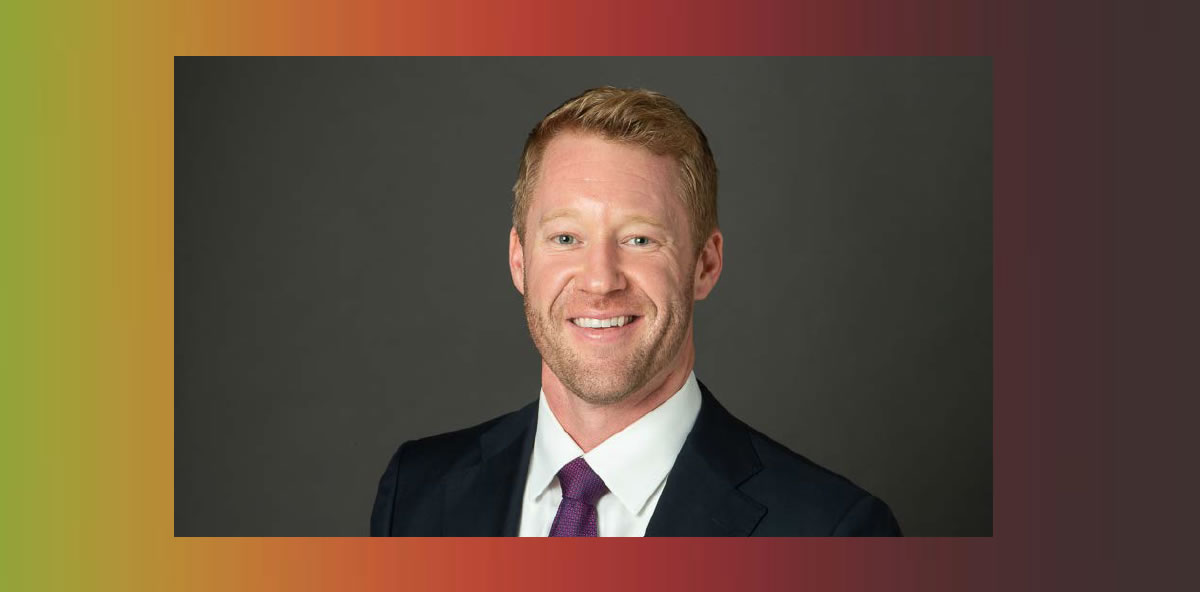
"I've never felt more accepted and freer to work for a company that allows me to be myself"
I was born in Princeton, New Jersey on a cold, almost New Year’s Day at 12:15 a.m. on January 2, 1991. I am the second child of my parents, and have a sister named Grace who was 18 months older than me. Shortly after I was born, my parents relocated to San Francisco for my dad’s work. We ended up living in the Bay Area for about 14 years before moving back to the east coast. My sister and I have fond memories of our time living in California – trips up and down the Pacific Coast Highway; watching the sea lions in Monterrey and Carmel; going to every amusement park up-and-down the California coast; and hundreds of weekends spent on Grace’s travel soccer games and my football camps during those 14 years.
My mom and dad were both competitive athletes growing up. My mom was a downhill ski racer at St. Lawrence University and my father was a wrestler at Purdue. So, it made complete sense that my sister and I also took a liking to sports. I always said my sister was the “stud athlete” in the family – picking up any sport and naturally being great at it. Her favorite sport was soccer and as a result of the many weekends we spent taking her to soccer games and camps, she ended up receiving a scholarship to play at William & Mary in Virginia. However, for me, being good at something meant taking the time and putting in the effort – not everything came naturally. But I always felt I had a strong work ethic and the determination to become the best I could potentially be. In 2009, I began my freshman year at Harvard where I was an outside linebacker for the football team.
When I was growing up, I don’t recall hearing about a single openly gay or LGBTQ+ athlete, no matter which sport was being played. From a young age, I knew I was a different - but it was a strange environment with no playbook on how to appropriately navigate this playing field of life. So, I felt the need to hide that part of me in order to fit in. I didn’t have any examples at that point in time that told me I could be my authentic self. And so I continued to hide that part of me. It was also during my time in college that my older sister confided in me that she was gay – a true modern family! To this day, I am so incredibly proud of her for being a positive force for change in this world, and also giving me the courage and confidence to live authentically. Grace currently lives in Williamsburg, Virginia, with her wife Bailley. And earlier this year they welcomed a beautiful baby girl into the world – the first of the new generation of Barnards, and I became an uncle!
In the Fall of 2013, I moved to New York for the beginning of my professional chapter of my life. I took a role at an up-and-coming start-up and I began my career in digital strategy and product management. It was during this point in my life that I knew technology was the exact area I wanted to be in. As a side project, I would build website for small businesses to help them gain more of a digital presence online. I viewed it as a hobby, but it made me happy to help. During my first few years in the city, I began to see how big and open the world was outside of my hometown and college campus. Millions of people were crammed into this tiny island -- an island that has been my home for nine years now -- a beautifully unique melting pot of people, cultures, and ideas (and I can’t forget to mention the amazing food).
Flash forward to the summer of 2015, the Supreme Court passed the Marriage Equality Act in the United States and within minutes, the city was abuzz – it was vibrant, with people dancing in the streets and on cars while Frank Sinatra and Lady Gaga were being played from restaurants and car speakers all over the city. And, for the first time in my life, something changed and I didn’t feel the need to continue hiding my authentic self. Later that summer, I began the process of coming out to my friends and family.
Around that same time, I also began to hear about other collegiate and professional athletes coming out as LGBTQ+, which continued to give me the strength I needed to reassure me that I was making the right decision by telling people. And although I didn’t have those examples as I grew up, I know that the current and next generation will be able to see themselves in all of those that have come before them and have pushed the boundaries for LGBTQ+ equality on and off the playing fields and in the workforce. I’m proud of how far our community has come in just a short time. To think that only seven years ago our country passed same sex marriage is a crazy. But, seven years ago, I began my journey that has led me to where I am today.
I had the opportunity to attend Columbia Business School in 2018, and for the first time in my life, I began living openly as a gay man. I distinctly recall during orientation week at school, people kept asking me if I had a girlfriend or wife and I would brush it off and say, “No, I’m single.” But I wouldn’t correct them on assuming I was straight. However, during the second week of school, people were asked to share their parts about themselves that people might not know – such as how they got to be here today, who their family is, and what’s important to them. The room was silent, and no one was wanting to volunteer to go first. Crickets. At the same time, my heart was pounding. And I knew that this was my one shot to start off a new chapter of my life on the right foot. So, I got out of my chair and shared my story with the 50 other new faces in the room. I talked about my parents. I talked about my sister coming out. I talked about how sports were a big part of my life. And then I opened up about having to hide a core part of who I was for 24 years and the mental and physical toll it took on me.
After telling my story, numerous other shared parts about themselves that made them vulnerable as well – what made them human. To this day, everyone at school mentioned that our cluster of 50 students were so much closer than any other and I attribute it to that one sharing session. Gay, straight or bi, I realized that a lot of people are afraid of having people see their authentic self – a lot of people are afraid of what others will think because that’s the world we’ve grown up in. I was afraid that after sharing my vulnerability that people would cautiously tiptoe around me. However, I was delightfully surprised at the number of people who thanked me for sharing and confided in me about how my story resonated with things that they too were going through. That day solidified my journey to finding my confidence and I haven’t looked back or doubted myself since.
After graduating from Columbia Business School in 2020, I began my career at Pfizer on the CBIO Corporate Strategy & Consulting team. And for the first time as a professional adult, I came to a workplace as openly gay. I’ve never felt more accepted and freer to work for a company that allows me to be myself. I now work in the Pfizer Digital Customer Experience team leading implementation efforts across Bold Moves 4.2, 3.3 and 1.1. And I’m very excited to help with Bold Move 1.1, which is overall colleague experience. One of the many causes I actively support is the Human Rights Campaign, and it was amazing to hear that Pfizer continues to rank as a leader on the HRC’s Corporate Equality Index as one of the best places to work for LGBTQ+ equality. And, as I continue to grow my professional career at Pfizer, I will continue to help make Pfizer as open and accepting as it can possibly be.
Carly Sheedy (She/Her)
QC PCT Lead, Quality Operations
Pfizer Global Supply
Grange Castle, Ireland
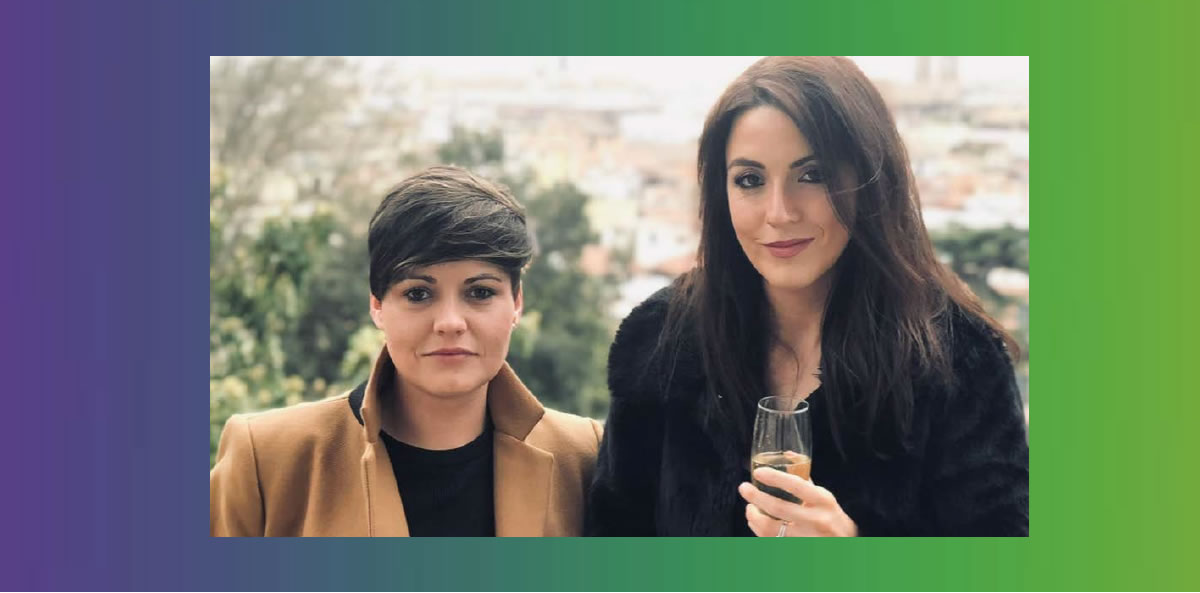
"The diversity and inclusion values of Pfizer are something that is thriving in the company, and I couldn't be prouder to now disclose my sexual orientation when asked."
I grew up in a quiet suburb in Dublin, Ireland, where I had an adventurous and happy childhood surrounded by a loving family and a large group of friends. As a child, I was different from the other girls in school, whereby most of my friends were boys. I thrived in all sports and was obsessed with football, skateboarding, climbing trees, and causing as much chaos in the neighbourhood as possible! My mother tried her best to pick out beautiful dresses for me when we went clothes shopping, but I insisted on the baggy jeans, tracksuits, and football shirts.
When I went to secondary school, it was a strict all girl’s catholic school. The days of climbing trees and swapping football stickers had come to an end and instead was replaced with makeup, shopping, and having a boyfriend. Despite this, I knew I was different from the other girls. For my final year of secondary school, I went to a prep school where the atmosphere and attitude was completely different. It was a mixed school with no uniforms, much more freedom, and a wide diversity of students from different backgrounds. There were a number of LGBTQI+ students that I became friendly with, and it was then I knew that this was where I belonged. I still remained friends with the girls from my previous school and I eventually came out to them and my family when I was 19 years old.
I was lucky that my friends and family were so accepting. However, I still experienced situations where people would say “Oh, you don’t look gay, I would have never known” and I was always reluctant to tell people about my sexual orientation when I was in a new situation. I met my fiancée Claudie in 2014 and we got engaged in 2019 in Rome. Claudie is an amazing person and brings so much happiness to my life. We have so much fun and adventures together and I look forward to our future ahead!
The 2015 Marriage Referendum in Ireland was momentous and historic for the country. The result was a massive celebration for the LGBTQI+ community, with Ireland now the first country in the world to enshrine marriage equality in the constitution via popular vote. Despite this, the country still suffers from episodes of homophobia. However, we have come a long way in the past ten years. This June, I look forward to celebrating Pride in person with my partner and friends again after two years of cancelled events.
When I started at Pfizer in 2016, I was straight out of college, and ready to start my career. When I met my new colleagues, I was hesitant in disclosing information on my relationship status or sexual orientation. I still had this fear of been judged or that I would make people uncomfortable. In hindsight, I couldn’t have been more wrong! The diversity and inclusion values of Pfizer are something that is thriving in the company, and I couldn’t be prouder to now disclose my sexual orientation when asked. The OPEN Colleague Resource Group onsite has developed immensely over the years, not just with members of LGBTQI+, but with so many allies! My career here at Pfizer wouldn’t be the same without all the support and inclusion from my colleagues and I know I have made lifelong friends as a result.
I am proud to be an LGBTQI+ member of the Pfizer community!
Thomas Porter (He/Him)
Senior Manager, Site Relationship & Excellence Partner (Mid-Atlantic Region)
Pfizer Global Product Development
Charlotte, NC, United States
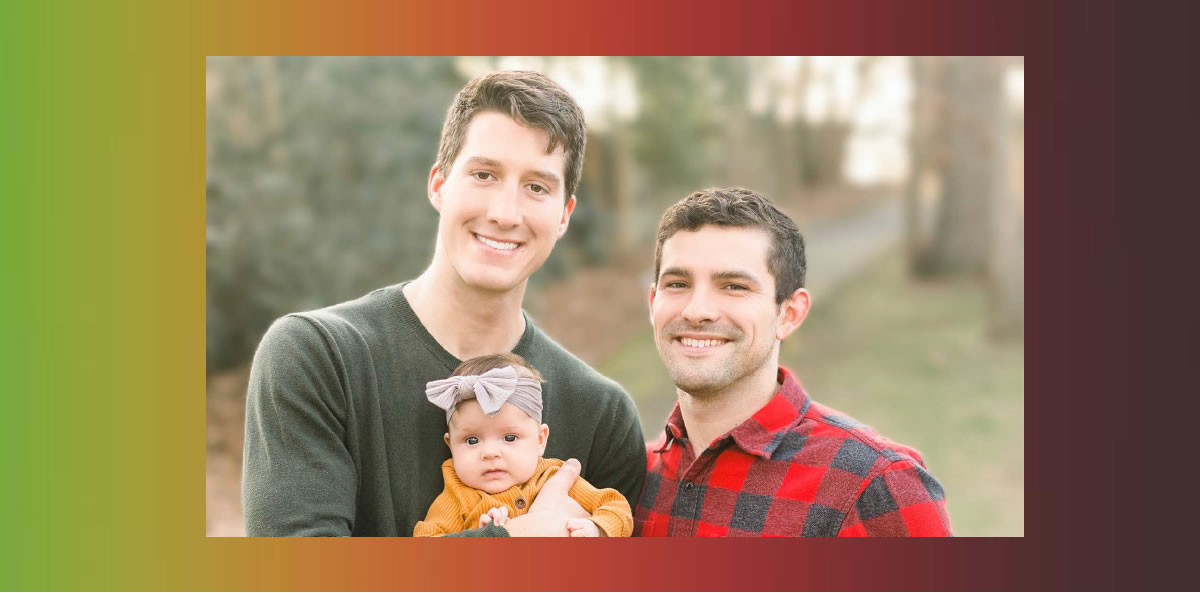
"I am extremely proud to work for a company that truly values and embraces colleague diversity and offers a variety of policies and benefits that support families like mine."
I met my now husband the year the Supreme Court’s ruling in Obergefell v. Hodges paved the way for legalized same-sex marriage across the United States. This decision was consequential historically, societally, and personally. It opened a pathway to something I always thought would stay just out of reach — nationwide legal recognition of our relationship and the prospect of a subsequently protected family unit. It prompted consideration of questions like who would be the one to propose, how would we handle last names, and what would be our path to building a family? Truthfully, the decision and its representation of legal equality empowered me to be unashamedly honest and no longer hide my sexual orientation or lie by omission, particularly in work settings.
As I progressed through various roles at the beginning of my career, when coworkers asked personal questions, I always made it a point to be truthful. Conversations often would go like, “Oh, what does your wife do for work?” to which I’d gently follow-up with, “Actually, my husband works in sales,” and then move on with the rest of the discussion. Coming out this way began to feel routine, and it became easier and easier with each interaction. As a testament to the progress that has been made, people generally didn’t make a big deal about it, and neither did I.
In 2021, with the help of an incredible surrogate, my husband and I welcomed our daughter into our family. The entire process, while full of ups and downs, marked the most amazing journey to fatherhood. Before becoming a dad, I was warned about so many different things — sleepless nights, surprise diapers, and spit ups, not to mention feeling my heart explode with love many times over. All of those were true, but something nobody warned me about was a rekindled sense of overwhelming conviction for growth and improvement. To continue to become a dad that my daughter can look up to and be proud of.
Everyone has their own unique story and journey ahead. For me, that means forging forward professionally and personally with utmost pride for my husband, my daughter, and our family structure. It also means actively working in our daily lives to lead and live with confidence. I am extremely proud to work for a company that truly values and embraces colleague diversity and offers a variety of policies and benefits that support families like mine.
Tracey Martire Capriotti (She/Her)
Senior Manager, ERP Training Lead
Digital Solutions Adoption
Collegeville, PA, United States
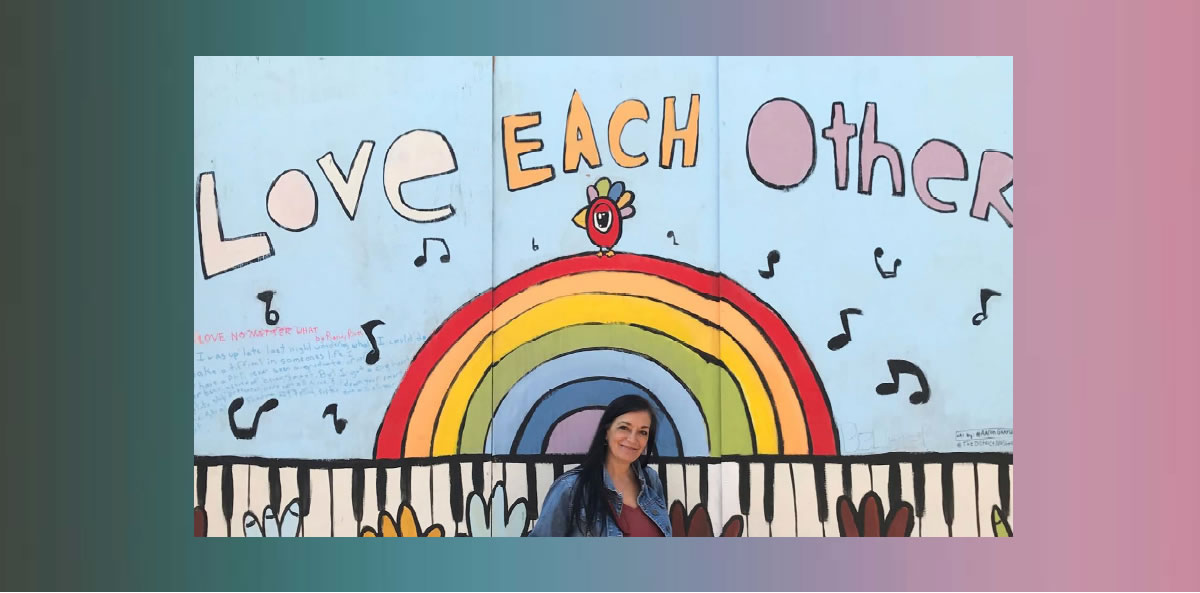
"Suddenly, we all knew how it felt to keep something a secret that really should be celebrated, not hidden"
Bullies and Denial
When my son Nick was a young boy, his father and I imagined that he would become a star athlete. He was big, strong, and fast. But his interest in sports quickly waned and was overshadowed by his love for acting, singing, and dancing.
Nick’s passion for the performing arts began to separate him from his childhood friends who were playing sports. Starting freshman year in high school, Nick became the target of bullying, and although he did his best to ignore the derogatory remarks, clearly it was bothering his self-esteem. There was a point where his father and I considered moving him to a performing arts high school where he would be surrounded by more people with similar interests. But Nick chose to stay at his public high school, went to prom with a different girl each year, and remained steadfast that he was straight.
Post high-school, Nick was accepted into an acting conservatory program at the American Musical and Dramatic Academy (AMDA) where he studied for one year in Manhattan and one year in Los Angeles. He met a girl that he dated for the duration of his time at AMDA. Even though he’s gregarious, handsome, dresses well, and cares for his appearance, I had no reason to suspect that my son was gay.
In 2018, Nick moved from the west coast back to Manhattan where he continued to pursue his career in acting. While Nick and I have always been very close, I started to notice that our conversations were becoming somewhat superficial, there seemed to be some distance between us, and overtime I began to worry about his emotion wellness.
Shock and Secrets
During the pandemic, our nuclear family of five suddenly found ourselves living under one roof. On May 12, 2020, our formerly estranged family was gathered at the dinner table to celebrate Nick’s birthday. Nick selected the menu and helped me to prepare the meal. We ate. We drank. We talked. We laughed. For several weeks – and on this night in particular– we enjoyed a familial closeness that was a wonderful byproduct the pandemic lockdown.
After dinner, the cake candles were lit, “Happy Birthday” was sung, gifts were opened, and then suddenly the smile left Nick’s face and was replaced by a solemn sadness. The look on his face scared me. I knew he was about to say something. Was he ill? Was he depressed? Was he upset? He put his fork down, looked around the table, then blurted out “I’m gay.” There was shock. There was silence. Everyone was frozen by the implication of his statement. I didn’t know what to say, so I just stood up and hugged him, then told him I loved him and that I wished he had told us sooner. His sister, brother, and father all did the same.
I didn’t sleep that night. I was so deeply saddened that he had kept his true self a secret for so long. As parents, we want just our children to be happy and healthy! The next day, Nick said that he wasn’t ready to tell our extended family, so we all agreed to keep this to our immediate family until Nick was ready to share. Suddenly, we all knew how it felt to keep something a secret that really should be celebrated, not hidden.
Love and Acceptance
Every year, our extended family gathers for a weekend in Ocean City, New Jersey. On Easter Sunday 2022, after almost 2 years, Nick finally had the courage to tell the emotional story of his personal journey to his aunts, uncles, and cousins. He was surrounded by nothing but love and acceptance. He wondered why he waited so long.
Nick has been in an exclusive, loving relationship for more than 18 months. He is very happy. I try to make a regular habit of reaffirming my personal commitment to embracing diversity within my family, friend groups, community, and workplace. The photo above was taken in Nashville, Tennessee in March 2022. It clearly says it all.
Carlos Jesús Perusquía (He/Him)
Senior Associate CMC
Regulatory Affairs, Research & Development
Mexico City, Mexico
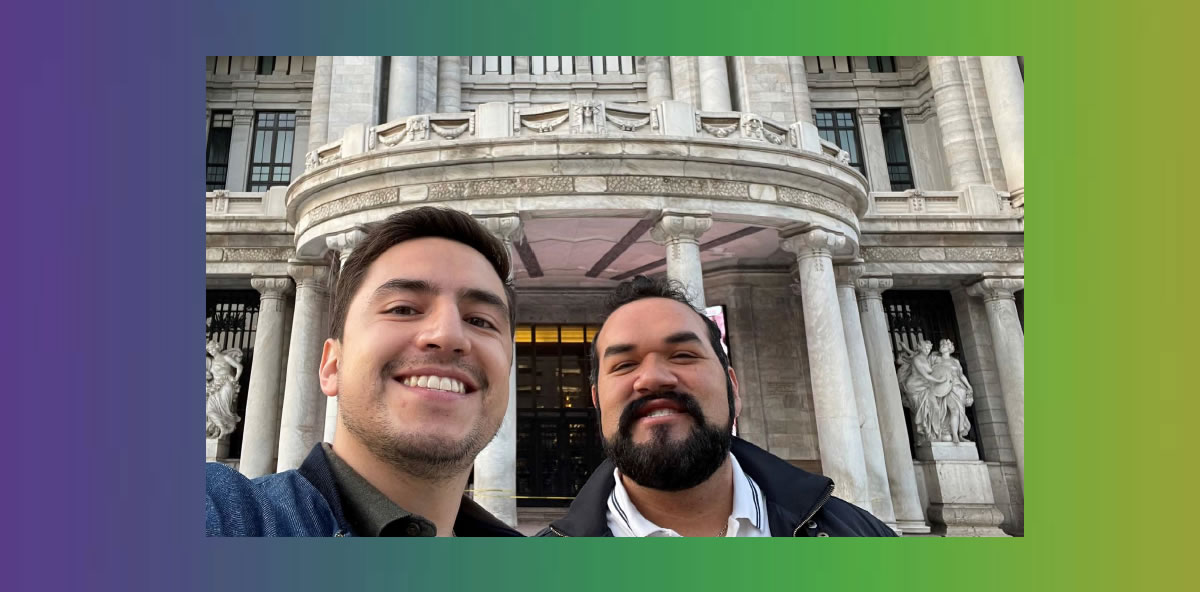
"I have never been ashamed of who I am or how I feel, I was just scared of other people's reactions, just like my mom"
Being a boy in the early 90s, born and raised in a male chauvinist country, sows in you the idea of a “model life” since your first steps: Get old, get a wife and have kids, get a house and a car. That’s it. At first, you seem to like the idea of that life. I mean, it is shown in every single corner of your life: Your neighbors, your teachers, books and magazines, movies and TV series. Even advertisements showed the “perfect family” embodied by the dad, the mom, and the children. That was the goal.
So, what happens when something inside wants something different? What happens when you don’t feel like following the standards? What if you are not interested in bothering the girls at recess or getting married to the prettiest girl at the school’s fair? Well … you hide it. Deep inside. Where nobody ever knows.
In the early 2000s, every kid at school wanted one thing when coming home after school: getting online. Chatting with your friends through MSN and Hotmail was the peak of social life. Answering tests and sharing never-ending email chains with friends and family were the main activities a teenage boy enjoyed doing on a computer back then.
I remember receiving a test via an email link from one of my closest friends, titled something like “Sex appeal meter.” I was only 14 and at that age there wasn’t anything more important than being liked. So, obviously I needed to know my score on that sex appeal meter scale. One question on the test asked if you have ever felt attraction to a person of your same gender. I answered “yes,” truthfully, because I wanted to know my results. I was shocked and horrified when, after clicking “submit,” a pop-up screen said “your answers were sent to the person that gave you this link.”
My life paused for an eternity there. My hands started shaking, my head started twirling, and I broke out in a cold sweat. That was the first time someone ever knew that I had gay feelings. I immediately wrote him “Please, let me explain.” I was terrified. I could see my life ending. It felt like everyone was going to look at me like the weird boy, the twisted one, the creepy classmate. What if he told his parents and they told my parents? I was going to be so badly scolded.
Finally, he answered me back. “What do you need to explain?” he asked, as if there wasn’t anything unusual in the answers he received. I wrote him “there might be one specific answer you find odd,” pretending to be calm. “Oh … well, maybe,” he replied. “Are you ok? Wanna talk about it?”
From all the possible scenarios that crossed my mind, I never thought that my friend would want me to talk about my feelings. “I’ve never told this to anyone before,” I wrote. “If you want to speak to someone, I can listen,” he answered. I felt so secure and confident that I wrote him the truth. I was admitting that I felt things differently; I was coming out of the closet, for the first time.
I can’t really tell when I started feeling attraction to boys, but the first time I admitted being gay was at the age of 14, when, thanks to my friend, I realized it was not a big deal. Contrary to my expectations, my life wasn’t ruined. It was not easy at the beginning. I remember having a list of the people to whom I came out in order to have control of that knowledge, but nothing ever happened. Maybe people heard the rumor, but nobody cared. I also remember declaring my feelings to the boy that I was attracted to, and he simply answered, “I’m sorry I can’t feel the same way as you but be sure that I love you as a friend.” I simply couldn’t ask for more. Was this it? Was it ok being gay?
I started dating guys at college, but nothing very serious. I made new friends and I had to come out again. Nobody was shocked or disturbed. There were a lot of other LGBTQ+ classmates so I was just another gay guy.
In my last year, I met my current boyfriend. He’s an architect from a good family. I was also already working at my first Big Pharma. As the relationship was getting serious, I felt confident enough with my upcoming graduation and a good job that I decided it was time to speak with my parents. All my friends from school and work colleagues already knew, and nothing bad happened. What could be different with my family?
I spoke to them at the same time, and I just said, “I have a boyfriend.” My father told me to be careful and look out for my health, but my mother couldn’t stop yelling and crying. She was destroyed. She started blaming everything and everyone. The school, the movies, the TV series, my friends. Something or someone had done something to me that affected me so badly and took me away from the “normal” path. It was unacceptable.
I couldn’t believe that my mother was the first person in about 10 years who had a conflict with my sexual identity. All my fears of rejection and disgust were incarnated in my mother. The discomfort stayed for over a year. Every single day, my mother told me something harmful and homophobic. My relationship suffered from this as well, as I wasn’t feeling good at home and couldn’t help but feel angry and confused when I was hanging out with my boyfriend. My friends noticed it as well, when I stopped smiling and gave them cold replies. I was changing. At work, I was always in a bad mood and delivering past-due results. I was so incredibly depressed and sad. My mother, the most important woman in my life, came to be the only person that was not ok with me being gay. I began to lose my self-confidence. How could I like who I was if my mother didn’t like it? How could anybody like me?
Since the very beginning of my relationship with my boyfriend, we always dreamed of how it would be to live together. Some of my friends started moving out from their parents’ houses and they seemed to be enjoying it. I got a new job with a better salary, but further away from home, with an almost two-hour commute. The hints were there, and the solution to my problems was clear: I had to move out. My boyfriend and I found a good apartment and decided to move in together. When I told my parents, my mother told me that she would never visit me, and that she could already see me coming back with regret. I was scared and anxious for this new stage in my life, and sad because I didn’t have the support of my mother.
Four years have passed since then. I changed my job twice, but always for better positions. I have learned so much about living on my own and had so many doubts and questions around the simplest things, like cooking and cleaning. I asked for guidance from colleagues and friends, but I knew that the best answers to those questions would only come from my mom.
I visit my parents every single Sunday. At the beginning, my mother’s mood changed, from being angry, to missing me, and then realizing I was actually doing pretty well on my own. I know now that she was only scared about what could happen to me in the world. She was afraid of the discrimination I could suffer, and the opportunities that I wouldn’t be offered. She, just like me, was sure that being “different” represented a problem in our society.
I must admit I have been extremely lucky. I know other’s stories, in which they are discriminated against or attacked for being gay. I know there are still people out there who don’t accept that LGBTQ+ people exist, or think we are sick. My mom is aware as well, and she is always begging me to be careful, and to behave in crowded places. At the end, homophobia is just another fear of the unknown. I have never been ashamed of who I am or how I feel, I was just scared of other people’s reactions, just like my mom.
02.05.2026
02.04.2026
02.02.2026
01.27.2026
01.13.2026
